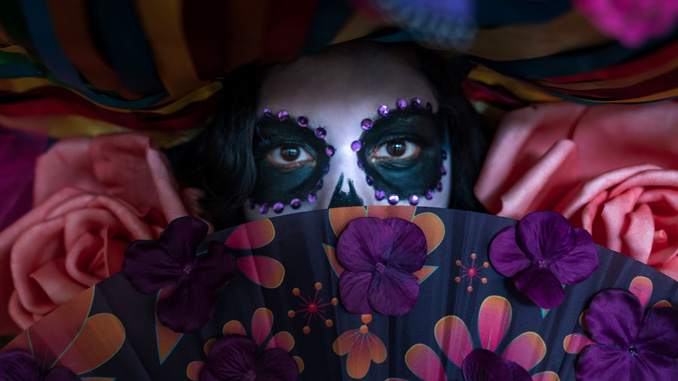
Día de los Muertos is often incorrectly celebrated as a Mexican Halloween. In reality, the two holidays have no relation, except that one falls the day after the other. The joyous (and colorful) celebration of life and death known as Dia de los Muertos is filled with tradition that reaches deep into the Mexican culture, celebrating historic beliefs.
The holiday traces its origins to the Aztec festival dedicated to Mictecacihuatl, goddess of the underworld and guardian of the bones of the dead. During this celebration it was believed that the spirits of the dead would return to earth and walk once again among their loved ones.
Like any holiday, there are many traditions that are part of Día de los Muertos, and here in San Joaquin County, families and the community are celebrating them all.
Ofrendas
Alters
Alters are central to the celebration of Día de los Muertos. Each alter is dedicated to a family member or friend who has passed and celebrates their life and what they loved most.
It was traditionally believed that the spirit would make its way back to the alter, so families offer food and water to sustain the spirits on their journey.
Cempasuchitl
Mexican Marigolds
Mexican marigolds are used to decorate the alter as it was believed that the flowers’ bright color and strong scent helped to guide spirits. Modern alters make use of both live and paper marigolds.
Alfeñiques
Sugar Skulls
Made of molded sugar paste and decorated in bright icing, sugar skulls come in all sizes and levels of complexity and are a common gift to children during Día de los Muertos.
Papel Picado
Pierced Paper
Papel Picado is made by carefully cutting an intricate design through brightly colored stacks of tissue paper. It is hung as decoration on alters and in the streets during Día de los Muertos.
Pan de Muerto
Bread of the Dead
This sweet bread is one of the foods that is traditionally found on the alters for the spirits on their journey—but it is also enjoyed by the living. Expert Tip: You can find pan de muerto at just about any Mexican bakery this time of year, including La Victoria Delicatessen (1305 E. Main St., Stockton).
Mexican Heritage Center and Gallery
111 S. Sutter St., Stockton
(209) 969-9306

